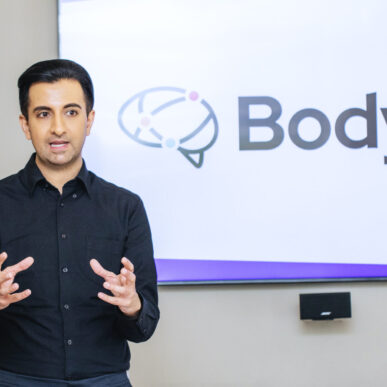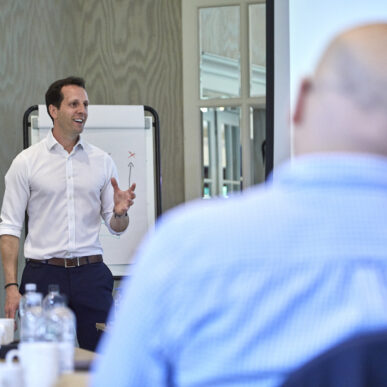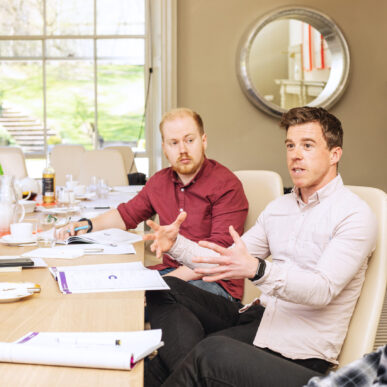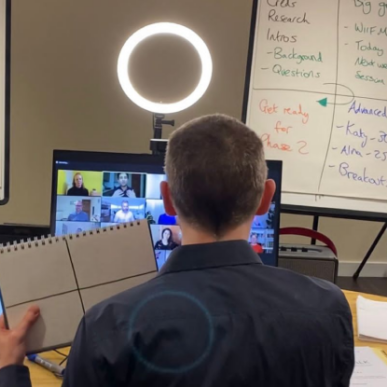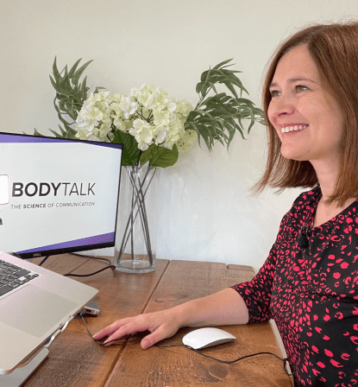9 Easy Steps To Take Your Public Speaking From Good To Great

If you care about becoming a better speaker there are many ways to achieve this. You can’t rely just on doing a one-off course, or asking a colleague for help. It’s best to apply a range of methods to give you greatest chance of success.
Here’s a few examples to get you started:
1. GET BETTER FEEDBACK
First and foremost, ask for specific feedback from people who see you speak.
After every presentation, grab a co-worker and ask for feedback. But be careful about what you’re asking for. If you just say, “can you give me some feedback?” they will likely focus on what they think went wrong, without touching on anything that went right.
Some better questions you can ask include:
- What did I do well?
- Why did that work?
- What parts of my delivery style, content and visual aids worked best?
Then you can ask, “If I gave that presentation again, what should I do differently?” Instead of them telling you about what went wrong, this encourages them to think of solutions to improve your performance.
2. FILM YOURSELF
If you’re going to practice at home alone, use a video camera not a mirror.
Some people talk about rehearsing in front of a mirror, but this can make you self conscious. Additionally, it can make you focus too much on yourself and not your audience when the big day arrives. Great public speaking is all about getting out of your head and into the minds of the audience.
Do keep in mind though that gestures and vocals that look right on camera are going to be too small for a live audience. Always keep in mind the size or room you’ll speak in.
3. SEIZE NEW OPPORTUNITIES
Be brave and put your hand up for every single opportunity you can to stand up and speak in front of a group of people.
For myself, I was terrified of standing and speaking at school. I couldn’t bear the idea of it. When I made the decision that I had to improve in this area, I decided to completely throw myself in the deep end and find every possible opportunity to stand and speak. This led to six months teaching English overseas and then to a job where I gave 200 presentations a year.
You never know where a little bravery can take you!
4. REFLECT
Of all the books I’ve read, one huge connecting idea is self-reflection.
Early in my career, I read books on speaking and presenting everyday. I would then apply what I learned in a client presentation. Afterwards I would look back at what moments worked, which ones didn’t, and why.
It was good for me to understand that the power of improvement was in myself — not technology, not the audience, me.
Reflection also helped me to see what areas needed work, so I could continue improving and learning over the years.
5. WATCH THE PROS
You can discover a lot about what you want to implement in your own presentations by seeing what professionals are doing. An easy way to do this is watching TED talks.
Take notes. Which talks are the most popular? Which do you like the most? What patterns do you see from one to the next?
Don’t copy what others are doing in these talks, but notice what a successful presentation looks and feels like. The more you see that, the more you’ll have an idea of what to aim for in your own work. TED Talks also specifically help because they’re something that people are internationally engaging with, not just in your business or corporate culture.
6. FREE YOUR MIND
A focused and relaxed mind is key for successful public speaking.
Getting into this mindset alone can take some practice. I recommend getting an app for your phone like Headspace or Insight Timer. They’re free, they’ll help calm your mind, and you can use them daily for practice. By doing this you will be in a great position when an important speech comes up, having already created a peak mindset.
7. GET PROFESSIONAL COACHING
One of the best things you can do for your public speaking improvement is to track it.
And one of the most effective forms of doing so is to work with a coach. You’ll have a qualified, experienced person who’s going to genuinely give you feedback. They won’t just say things to make you feel good or bad — they’ll give you actionable steps for improving.
You can use coaching sessions as a way to objectively measure how you’re coming along on your public speaking journey. The coach will always have the same barometer for where you are now versus where you were when you started.
When choosing a coach I recommend you think about the following:
- Find someone who also struggled with their speaking skills, so that they will relate to your journey and understand how to overcome challenges. If you choose someone who has always been a confident speaker they will not have personal experience of building their skills
- Watch them in action — do you like their general approach to public speaking? If so then they will take you in the right direction. You don’t need to copy them, but having the same perspective on the end goal is a great starting point.
8. READ
There’s a few books I’ve enjoyed over the years that have helped boost my skills and background knowledge. These include Storynomics by Robert McKee, which addresses taking information in a business setting and turning it into an engaging story that people will remember. You may also like The Chimp Paradox by Dr Steve Peters which features an in-depth look at mindset.
Books like these and many years of teaching these skills inspired me to pull together my own 19 years experience into a book, which is out now (and you can order it here!).
9. GO TO A WORKSHOP
Finally, one of the best ways for improving your public speaking is workshops.
There’s nothing like it. You’ll gain new techniques plus the opportunity to try them out with a real audience to practice in front of.
The best part is that you’re all in it together, making feedback and critique honest and actionable.
To learn more about how we can help you please contact our team.







